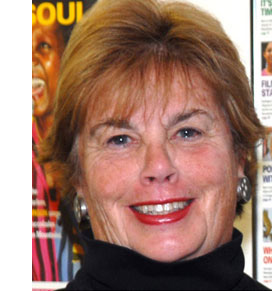Nearly everyone of a certain age has either been a patient, engaged with a nurse who became the voice and representative of a loved one, or performed nursing duties as a caretaker for a loved one. I count myself as one who has been or done all three.
In this issue, nurses are featured in our cover story, a rare focus on a profession that Americans, according to poll after poll, consider to be the most respected and trustworthy with the highest ethical standards. While doctors focus on pathology, diagnosis, and treatment options, nurses provide caretaking services that are vast, diverse, complex, and multilayered and require superior technical and personal skills, and they often must make on-the-spot decisions. Talk about multitasking under pressure.
After a recent hospital stay for complications from Lyme disease (since cured), I cannot give enough praise for the tightly managed and coordinated nursing care I received. In the course of three days, my primary assigned nurse changed about 10 times. The working paradigm was that each time the changeover occurred, the nurse on duty introduced me to the new nurse, and then we all discussed my case and reviewed my medical report and treatment. The new nurse’s name and the time period she was covering were written on a whiteboard opposite my bed. I felt confident that the new nurse had a thorough understanding of my condition. |

Sue Gillis
Publisher, Vermont Woman
photo: Jan Doerler |
What a change from a few years ago when, during another hospital stay, I never knew who was on duty. This is a big improvement and a win all the way around. The patient has confidence in the nurse on duty, the nurse has confidence in knowing the up-to-date status of her patient’s needs, and doctors have confidence that their orders are being competently carried out. I’m guessing there are fewer errors too. (My hope is that some day—and the sooner the better, again speaking from personal experience—a similar approach will be figured out for the ICU: a story for another day.)
It was also during this recent hospital stay that I personally experienced every attribute essential to excellent nursing. Here they are: intuition, emotional stability (calm), excellent communication skills, physical endurance, ability to coordinate services (such as dispensing medications), patience, tenderness, flexibility, respect, empathy, attention to detail, problem-solving skills, quick responses, interpersonal skills (between doctors, family, visitors, other nurses and personnel, other patients, and the patient), and critical thinking, which for me is the most important. Why? Because nurses are on the front line all day and especially nights, weekends, and holidays, when staffing becomes sparse and doctors are long gone. It will be her assessment and quick response that will make the difference, whether it’s ensuring a patient’s comfort or responding to a life-threatening event.
The history of nursing is fascinating, particularly its surprisingly slow growth due to religious and political resistance. It was not until World War II that nursing schools were established and the profession finally took hold in the United States. Credit goes to British nurse Florence Nightingale who is considered the founder and pioneer of modern nursing practice.
She was born in 1820 into a family of privilege and was well educated. She became interested in the poor and the sick and studied medicine in Germany. She returned to England and was soon sent to the front lines of the Crimean War. Horrified by the conditions she witnessed, she developed nursing methods still used today. Upon returning to England, she was awarded $250,000 by Queen Victoria and started St. Thomas Hospital, a training school for nurses. Frustrated by the lack of work opportunities for women, Nightingale encouraged women to become nurses. Until recently, nursing was considered women’s work; however, men have increasingly entered the field and now make up 6 to 9 percent of the nursing workforce. In Vermont there are approximately 6,500 registered nurses, of which 9 percent are male.
It was Florence Nightingale who said nursing is a calling. Most nurses agree. It’s a good thing, too, that people are still answering that call, because whatever would we do without nurses.  |